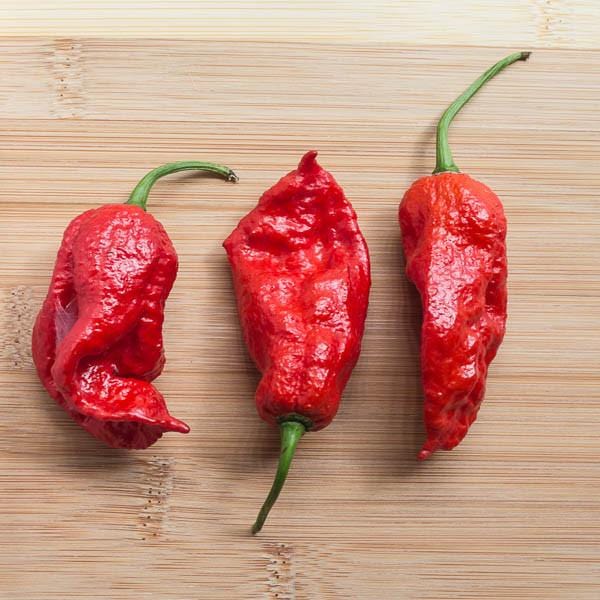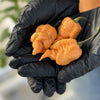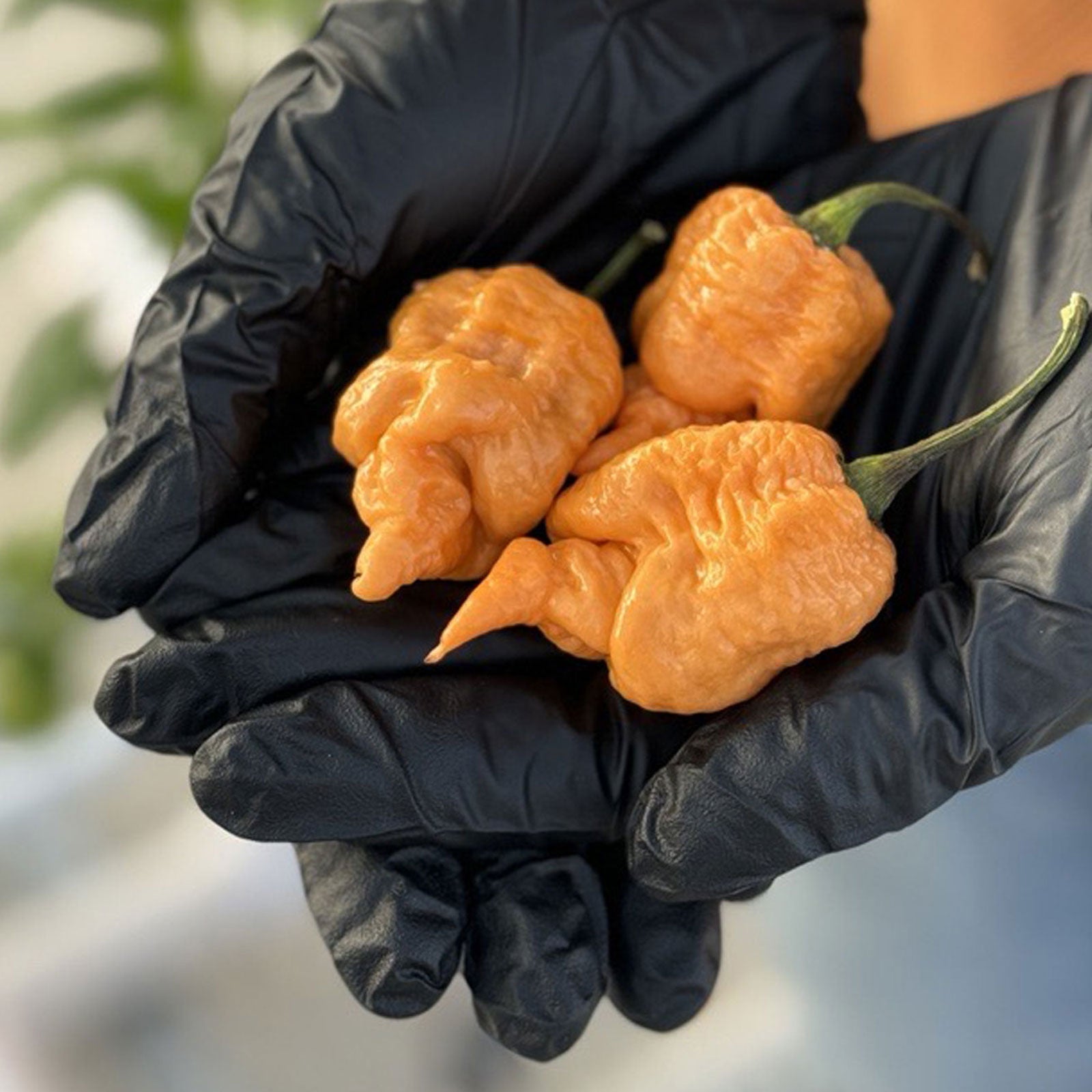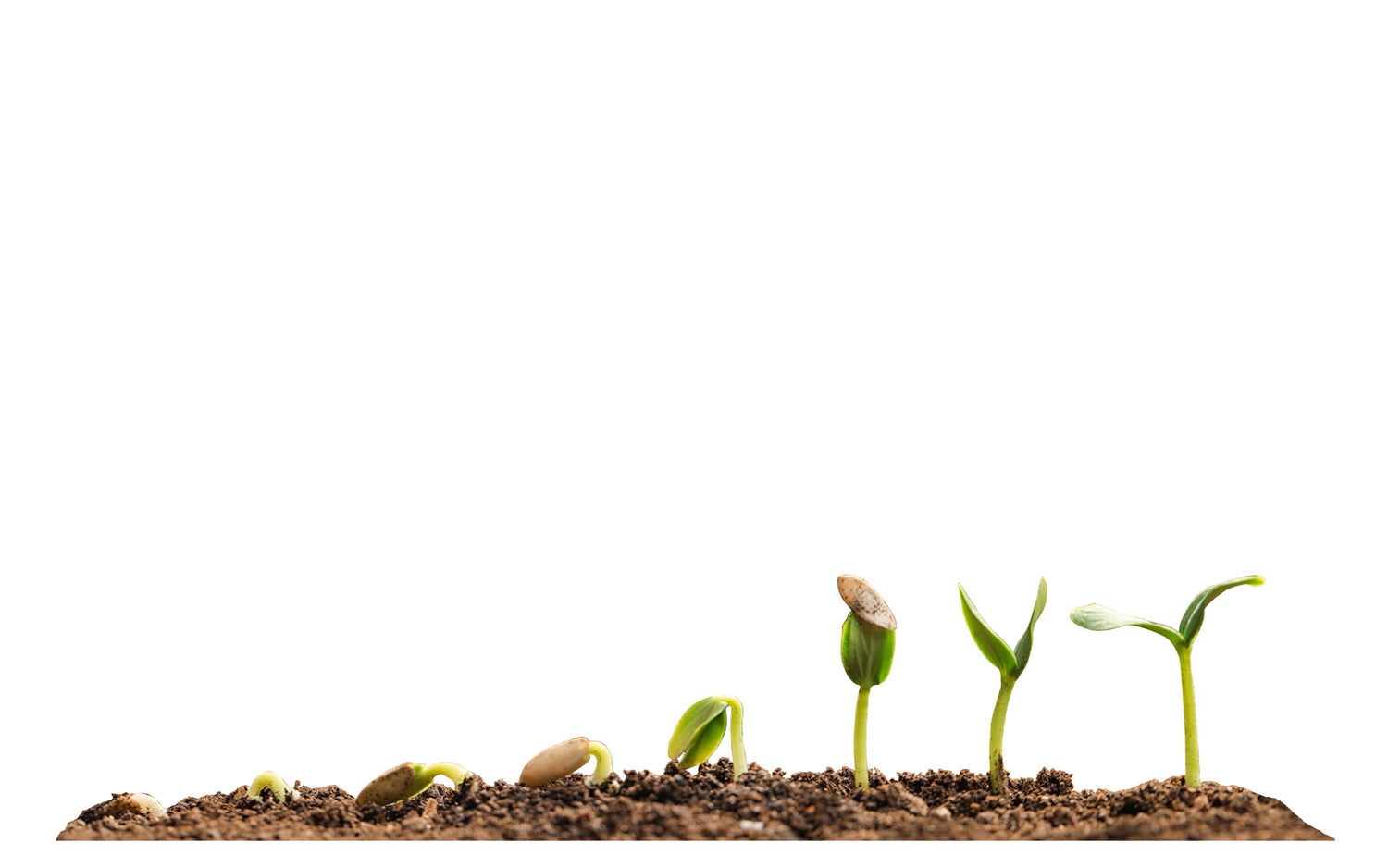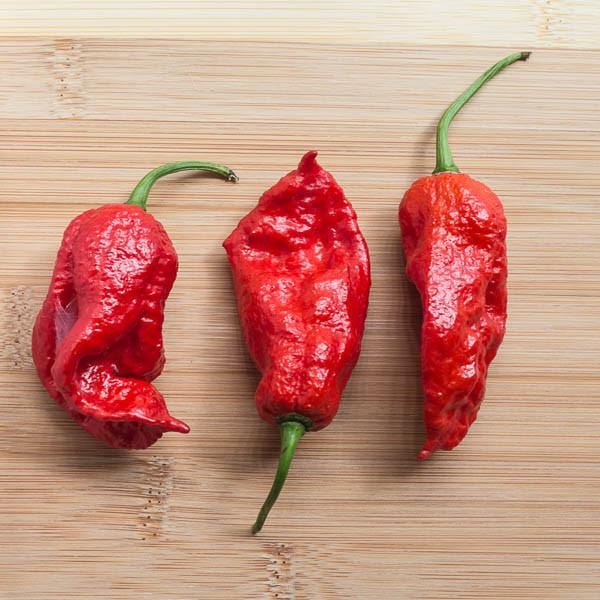
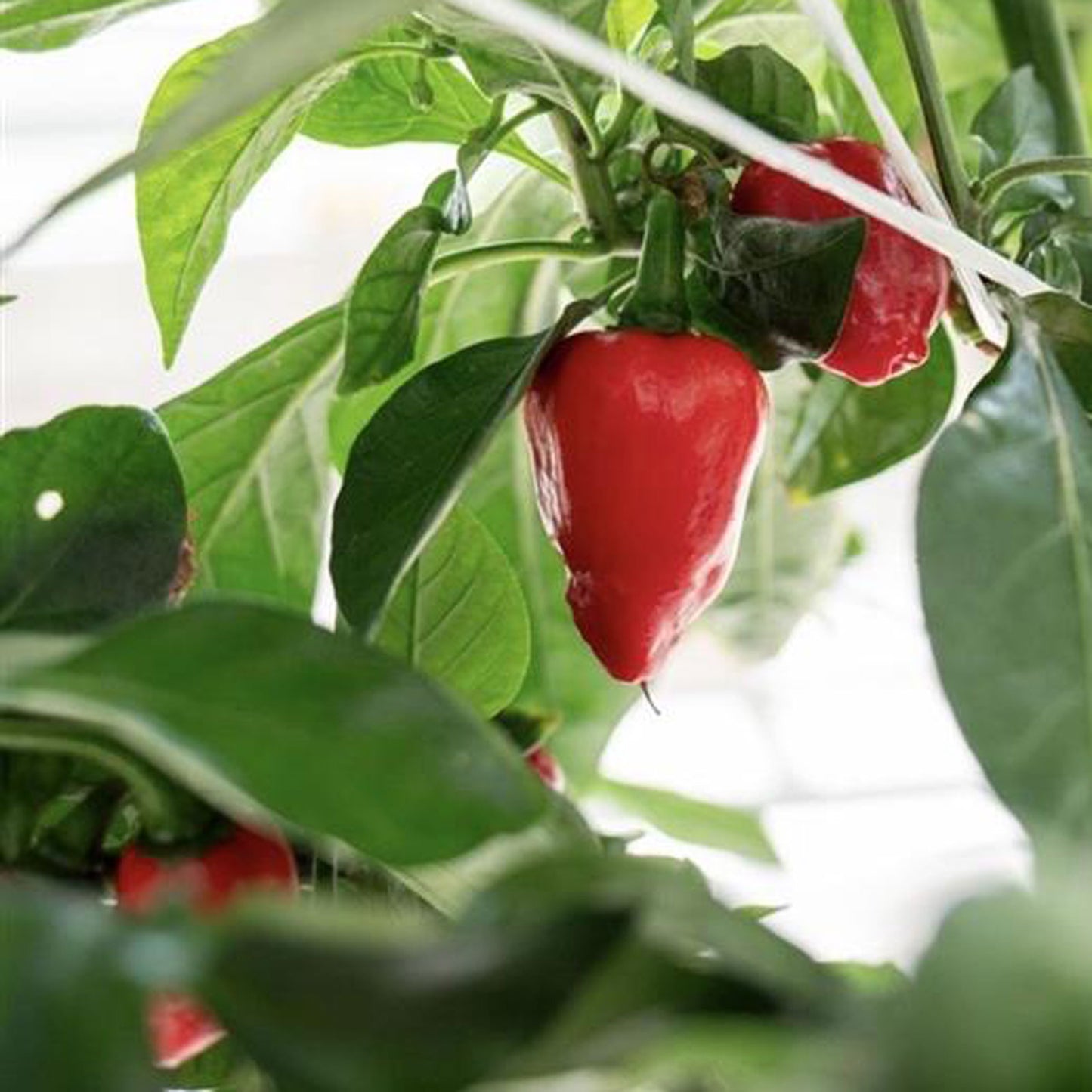
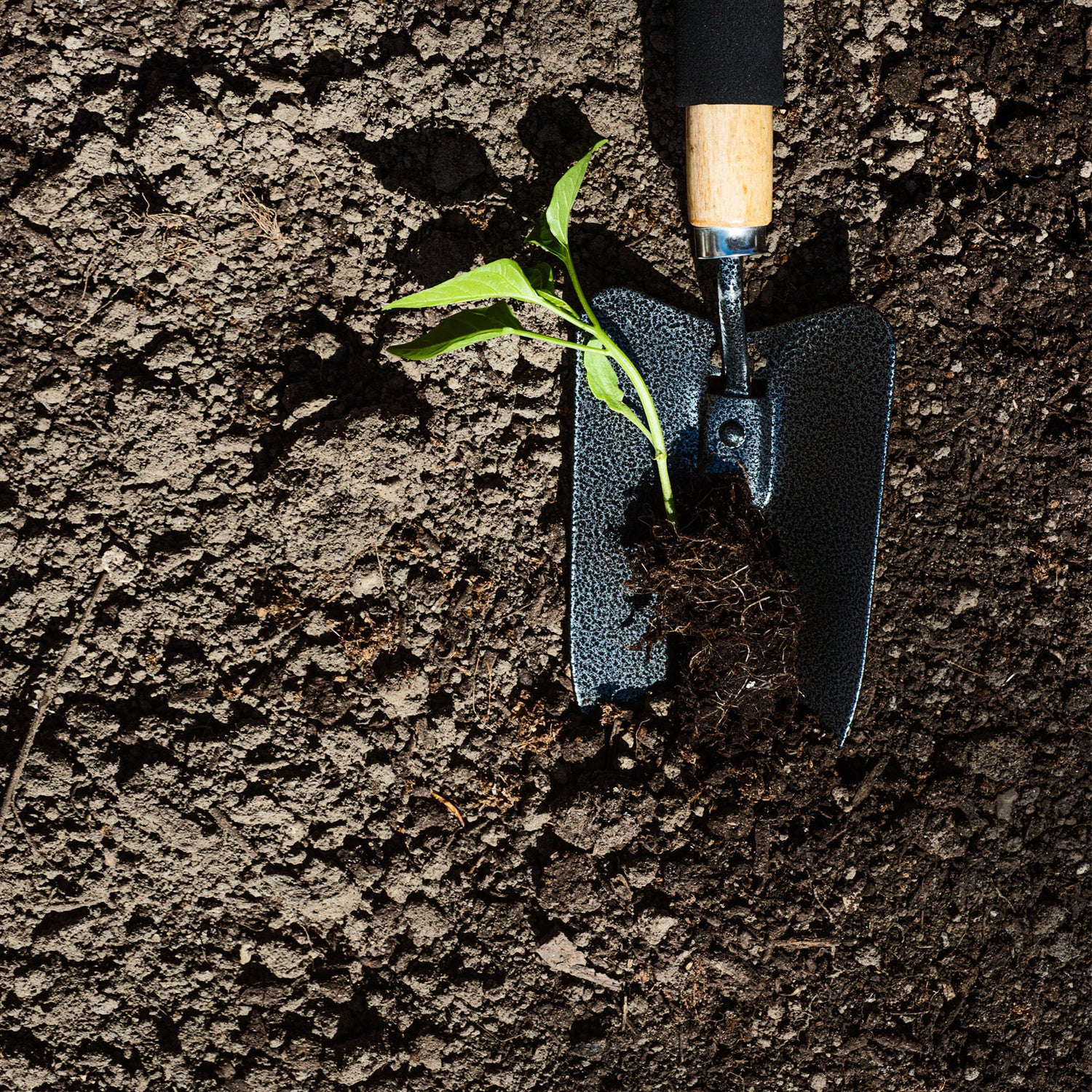
Getting Started
So, you've received your seeds and are wondering what's next? At Pepper Joe's, we're committed to equipping you with everything you need to succeed in germinating the pepper seeds you've chosen. Our mission is to introduce you to a diverse array of pepper varieties, setting the stage for an exciting and rewarding gardening experience. Let's dive into the essentials together.
-

What You'll Need
Seed Starting SuppliesSoil and Tray Method
- Water
- Seed Starting Soil Mix of Choice (seed starting mix is different than potting soil.)
- Seed Germination Tray
- Humidity Dome
- Heat Mat
- Temperature Controller
- Plant Light
- Plant Labels
- Dibber or similar object
- Gloves (optional, but if you're dealing with super-hot peppers, oil may still be on the seed)
-
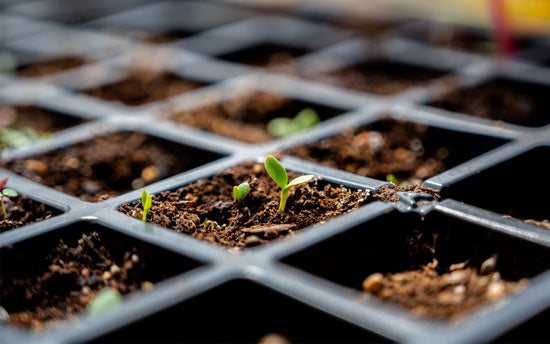
Plant your Seeds
- Pre-saturate your seed starting soil mix. Ensure the seed starting mix is fully saturated prior to planting your seed.
- Make a ¼-inch hole in the center of each seed starting cell. A #2 pencil eraser is a great tool for making these holes.
- Place your seed and cover gently with soil.
You can plant up to 4 seeds per cell to help ensure successful germination.
-
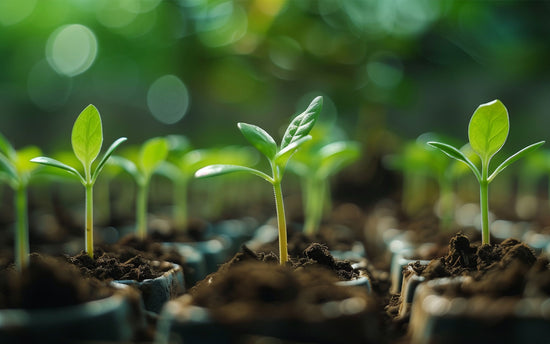 Starting Peppers from Seed
Starting Peppers from Seed4. Place your heat mat under your base tray and your humidity dome on top. For best results, set your temperature controller between 75 - 80 degrees.
5. Place your plant light above the seed starting tray and turn on. Refer to the plant light manufacturers instructions for the optimal distance. Plant light should remain on for 14 to 16 hours per day.
6. Enjoy watching them grow! See our full instruction page below for more information.

